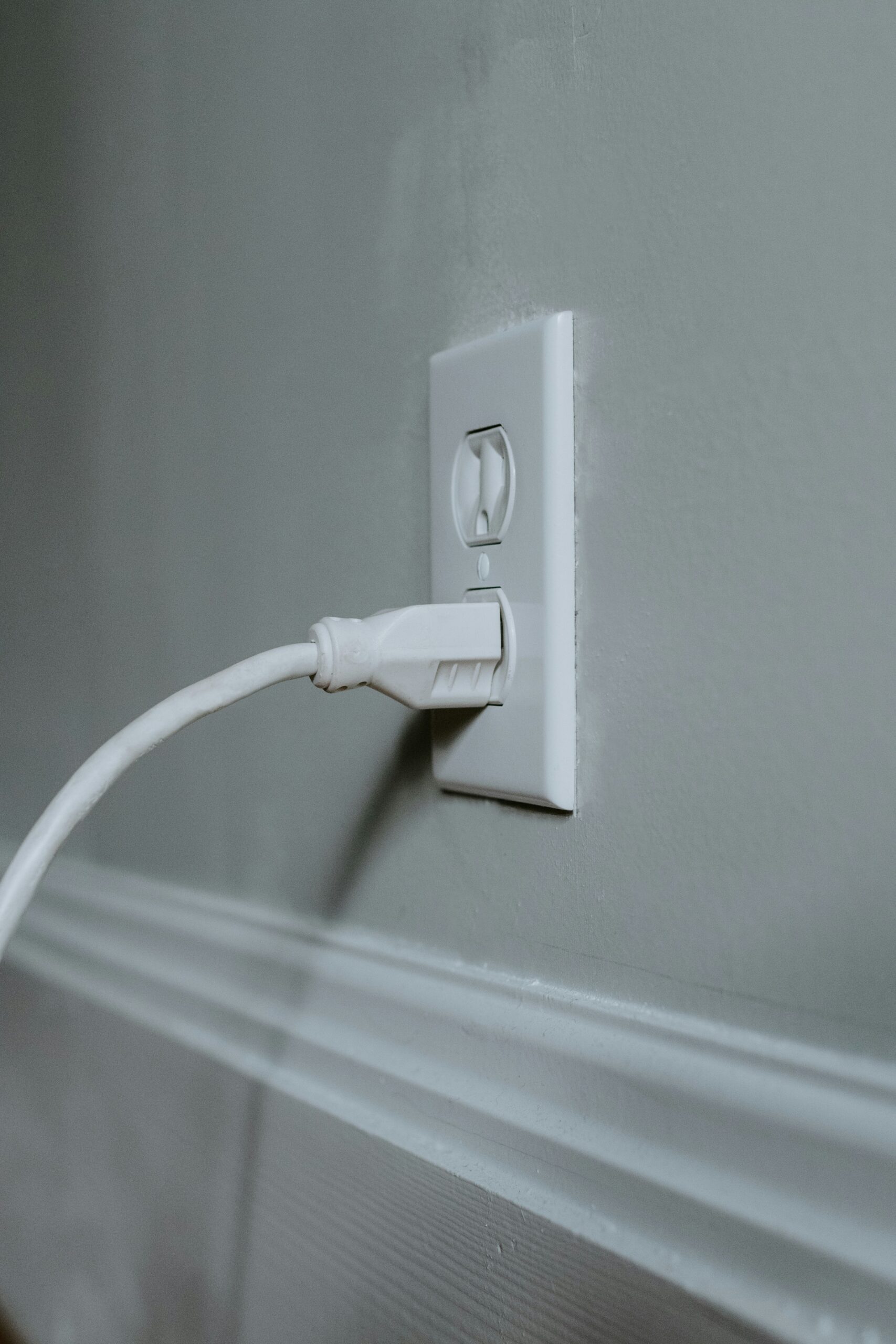Imagine never having to worry about losing power during a storm or blackout again. With a home power backup system, you can keep your essential appliances running smoothly no matter what. Whether it’s your refrigerator keeping your food fresh or your laptop keeping you connected, a home power backup system has the ability to power all of your essential appliances. Say goodbye to spoiled food and disconnected devices – a home power backup system is here to save the day.
Understanding Home Power Backup Systems
A home power backup system, also known as a standby generator, is a device that provides electricity to your home during power outages. It acts as a reliable alternative power source, ensuring that you can continue to use essential appliances even when the grid is down. These systems are designed to automatically start and supply electricity within seconds of a power outage, providing you with uninterrupted power until the utility power is restored.
Different types of home power backup systems
There are several types of home power backup systems available, each with its own advantages and drawbacks. The most common types include:
-
Standby Generators: These are permanently installed units that are connected to your home’s electrical system. They are fueled by natural gas or propane and can generate a large amount of power.
-
Portable Generators: These are smaller, mobile units that can be moved around and operated outside your home. They run on gasoline, diesel, or propane and can power a limited number of appliances.
-
Solar Power Systems with Battery Backup: These systems use solar panels to harness energy from the sun and store it in batteries. They can supply power to your home during daylight hours and also have the ability to store excess energy for use at night or during power outages.
-
Wind Power Systems: These systems utilize wind turbines to generate electricity. They can be connected to a battery bank to store excess energy and provide backup power when needed.

Function and efficiency of home power backup systems
The primary function of a home power backup system is to ensure that essential appliances can continue to operate during a power outage. This includes appliances such as refrigerators, sump pumps, heating and cooling systems, medical equipment, and select electronics.
The efficiency of a backup system refers to how effectively it can power your appliances without any interruptions or fluctuations in electricity supply. Standby generators and solar power systems with battery backup are known for their high efficiency, as they can seamlessly switch between the utility power and backup power without any noticeable interruption. Portable generators and wind power systems may have a slightly lower efficiency due to the need for manual setup and connection.
It is important to choose a backup system that matches your power needs and provides sufficient capacity to run your essential appliances without overloading the system. Regular maintenance and periodic testing of the backup system can also help ensure its efficiency and reliability.
Essential Home Appliances
Essential home appliances are those that are necessary for basic living and the smooth functioning of your household. These appliances are crucial during power outages, as they provide comfort, convenience, and safety. Typical essential home appliances include:
-
Refrigerators and Freezers: These appliances are responsible for storing food, medications, and other perishable items. Keeping them running during a power outage is vital to prevent spoilage and ensure food safety.
-
Heating and Cooling Systems: This includes furnaces, air conditioners, heat pumps, and other climate control systems. Maintaining a comfortable indoor temperature is essential for your well-being during extreme weather conditions.
-
Sump Pumps: If you live in an area prone to flooding, a sump pump is crucial for preventing water damage in your basement. It helps in removing water buildup and keeping your home dry.
-
Medical Equipment: People who rely on medical equipment, such as oxygen concentrators, CPAP machines, or dialysis machines, require a continuous power supply to ensure their health and safety.
-
Communication Devices: In today’s interconnected world, having access to communication devices, such as phones and radios, is essential during emergencies.

Power requirements of typical essential home appliances
Understanding the power requirements of your essential home appliances is crucial when selecting a backup power system. The power needed by an appliance is measured in watts (W) or kilowatts (kW). Here are the approximate power requirements for some common appliances:
- Refrigerators and Freezers: 500-800 watts
- Heating Systems: Varies depending on the type and size of the system
- Air Conditioners: 1,000-2,000 watts
- Sump Pumps: 500-1,000 watts
- Medical Equipment: Varies depending on the specific device
- Communication Devices: 5-50 watts
By understanding the power requirements of your essential appliances, you can determine the size and capacity of the backup system needed to power them during a power outage.
Connecting Home Appliances to Backup Systems
Understanding the different types of connections for home appliances is crucial to ensure their safe and efficient operation during a power outage.
-
Direct Connection: Some backup systems, such as standby generators, are directly connected to your home’s electrical system. They have an automatic transfer switch that detects a power outage and switches the supply from the utility to the backup system. This ensures a seamless transition and allows all connected appliances to receive power without the need for manual intervention.
-
Manual Connection: Portable generators require manual setup and connection to your essential appliances. This involves using extension cords or transfer switches to connect the appliances directly to the generator. It is important to follow the manufacturer’s instructions and safety guidelines to prevent issues like electrical shock or generator overload.

Safety measures
When connecting home appliances to backup systems, it is essential to follow safety measures to protect yourself and your appliances. Some important safety measures include:
- Ensure proper grounding of the backup system to prevent electrical shock hazards.
- Use high-quality extension cords and transfer switches that are designed for the power requirements of your appliances.
- Position portable generators outdoors in a well-ventilated area, away from windows, doors, and flammable material to prevent carbon monoxide poisoning and fire hazards.
- Regularly inspect and maintain your backup system to ensure its safe and reliable operation.
Importance of professional installation
To ensure the safety and efficiency of your backup system, it is highly recommended to hire a professional for the installation process. A professional installer will have the necessary knowledge and expertise to properly connect the backup system to your home’s electrical system, ensuring compliance with electrical codes and regulations. They can also provide guidance on selecting the right backup system based on your power needs and budget.
Professional installation not only ensures the safe and reliable operation of your backup system but also helps protect your home’s warranty coverage. Many manufacturers require professional installation to validate the warranty, so it is important to check the warranty terms before attempting a DIY installation.

Backup Power for Different Appliances
Different appliances have varying power requirements and priorities during a power outage. Here’s how backup power can be utilized for different types of appliances:
Backup power for cooling and heating systems
Heating and cooling systems are essential for maintaining a comfortable indoor temperature, especially during extreme weather conditions. During a power outage, standby generators can provide backup power to these systems, ensuring that your home remains warm or cool depending on the season.
It is important to note that heating and cooling systems consume a significant amount of power, and the capacity of your backup system should be able to handle the load. Professional installation and proper sizing of the backup system are crucial to ensure reliable operation without overloading the system.
Backup power for medical equipment
For individuals who rely on medical equipment, having a backup power system is of utmost importance. Standby generators or battery backup systems can provide continuous power supply to medical equipment, ensuring the well-being and safety of individuals with medical needs.
It is essential to identify the power requirements of the specific medical equipment and select a backup system that can handle the load. In some cases, it might be necessary to consult with a healthcare professional or the manufacturer of the medical equipment to ensure compatibility with the backup system.
Backup power for kitchen appliances
During a power outage, many kitchen appliances become essential for cooking and food preparation. Standby generators or portable generators can be used to power essential kitchen appliances such as refrigerators, stoves, microwaves, and coffee makers.
When connecting kitchen appliances to a backup system, it is important to prioritize and select appliances based on your immediate needs. Ensure that the backup system can handle the power requirements of the appliances without overloading.
Backup power for electronics
Electronics such as computers, televisions, and smartphones are crucial for communication, entertainment, and work productivity. While they are not classified as essential appliances, having backup power for electronics can provide comfort and convenience during a power outage.
Battery backup systems, such as uninterruptible power supplies (UPS), are ideal for powering electronics during short-duration power outages. These systems provide a limited amount of power and act as a temporary solution until the main power supply is restored.
Power Capacity of Home Power Backup Systems
The power capacity of a home power backup system refers to the amount of power it can generate and supply to your home during a power outage. Understanding the power capacity is crucial to ensure that the backup system can meet the demands of your essential appliances.
How backup power capacity is measured
The power capacity of a backup system is measured in watts (W) or kilowatts (kW). This is usually indicated as the system’s rated power output. The power output determines how many appliances and the amount of power the backup system can handle simultaneously.
For example, a backup system with a rated power output of 10,000 watts can handle appliances that collectively require up to 10,000 watts of power. It is important to consider the starting power requirements of certain appliances, as they may require an initial surge of power before settling into their normal power consumption.
How to calculate the power needs of your home
To determine the power needs of your home, you need to assess the power requirements of individual appliances and calculate their cumulative power consumption. Here’s how you can calculate the power needs:
-
Make a list of essential appliances and their power requirements. Refer to the power requirements provided by the appliance manufacturer or consult a professional for guidance.
-
Determine the runtime or the amount of time each appliance is expected to be used during a power outage. This will help you calculate the total energy consumption.
-
Multiply the power requirement (in watts) of each appliance by the expected runtime (in hours) to calculate the energy consumption (in watt-hours).
-
Add up the energy consumption of all appliances to determine the total power needs of your home.
By accurately calculating the power needs of your home, you can select a backup system that meets your requirements and ensures uninterrupted power supply during outages.
Options for increasing power capacity
If you find that your existing backup system does not provide enough power to meet the demands of your essential appliances, there are a few options to increase power capacity:
-
Upgrade the Backup System: Consider upgrading to a higher capacity backup system that can handle the power requirements of all your essential appliances. Consult with a professional to determine the right size and capacity for your needs.
-
Load Management: Implement load management strategies to prioritize and distribute power to essential appliances. This involves selecting which appliances to run simultaneously based on their power requirements and immediate needs.
-
Add Parallel Units: Some backup systems allow for parallel operation, where multiple units can be connected in parallel to increase the overall power capacity. This can be a cost-effective solution for increasing power capacity without the need to replace the entire system.

Effectiveness of Home Power Backup Systems
The effectiveness of a home power backup system depends on various factors that can influence its performance and reliability.
Variables that can affect the efficiency
Several variables can affect the efficiency of a home power backup system, including:
-
Fuel Source: The type of fuel used to power the backup system can impact its efficiency. Propane and natural gas are commonly used in standby generators and are efficient and cost-effective options. Diesel and gasoline can be used in portable generators, but they may have lower efficiency and higher fuel consumption.
-
Size and Capacity: Choosing a backup system that matches the power needs of your essential appliances is crucial for efficient operation. An undersized backup system may struggle to power all appliances simultaneously, while an oversized system may lead to unnecessary fuel consumption and higher costs.
-
Regular Maintenance: Proper and regular maintenance of the backup system is important to ensure its efficiency. This includes cleaning, checking fuel levels, oil changes, and periodic inspections by a professional.
Average duration of power supply provided by backup systems
The duration of power supply provided by backup systems can vary depending on factors such as the fuel capacity of the system, the size of the backup system, and the power consumption of the connected appliances.
Standby generators, particularly those fueled by natural gas or propane, can provide an uninterrupted power supply for an extended period if properly maintained. These generators are often connected to the home’s natural gas or propane supply, allowing for continuous operation without the need for refueling.
Portable generators, on the other hand, have a limited fuel capacity and typically provide power for a shorter duration. These generators require manual refueling and can be used for several hours, depending on the generator’s fuel consumption and load.
Solar power systems with battery backup can provide power during daylight hours and also have the added advantage of storing excess solar energy for use at night or during power outages. The duration of power supply from solar power systems with battery backup depends on the capacity of the battery bank and the amount of energy stored.
Cost of Installing Home Power Backup Systems
The cost of installing a home power backup system can vary depending on several factors, including the type of system, the size and capacity of the system, fuel type, and additional installation requirements.
Cost of various backup power systems
-
Standby Generators: The cost of a standby generator can range from a few thousand dollars to tens of thousands of dollars, depending on the size and capacity of the unit. Additional costs may include installation, fuel supply, and ongoing maintenance.
-
Portable Generators: Portable generators are generally more affordable than standby generators and can range in price from a few hundred dollars to a few thousand dollars, depending on the size and features. However, they may require additional costs for fuel supply, extension cords, and transfer switches.
-
Solar Power Systems with Battery Backup: The cost of solar power systems with battery backup can vary significantly depending on the size of the system, the number of solar panels, and the capacity of the battery bank. The cost usually includes solar panels, inverters, battery storage, and installation.
Installation and maintenance costs
Installation costs for a home power backup system can vary depending on the complexity of the installation and any additional requirements. It is highly recommended to hire a professional installer, which can add to the overall installation costs. However, professional installation ensures proper connection, compliance with regulations, and maximizes the efficiency and safety of the backup system.
Maintenance costs for backup systems generally include regular inspections, oil changes, fuel refilling, and any necessary repairs. The frequency of maintenance can vary depending on the type of system and manufacturer’s recommendations.
Potential financial benefits
Although the upfront cost of installing a home power backup system can be significant, there are potential financial benefits to consider:
-
Protection from expensive damages: Backup systems can help prevent costly damages that can occur during power outages, such as food spoilage, basement flooding, or damage to electronic equipment.
-
Increased home value: Installing a backup system can increase the value of your home, especially in areas prone to power outages or natural disasters. It can be seen as an attractive feature for potential buyers.
-
Potential insurance discounts: Some insurance companies offer discounts on homeowners’ insurance policies for homes equipped with backup systems. These discounts vary depending on the insurance provider.
It is important to consider the potential financial benefits along with the initial installation and maintenance costs when determining the overall cost-effectiveness of a home power backup system.
Legislation and Regulations
There are rules and regulations in place regarding the installation and use of backup power systems to ensure safety and compliance with electrical codes and standards.
Understanding rules and regulations about backup power systems
Building codes and regulations may dictate specific requirements for the installation and use of backup power systems. These codes are intended to ensure proper electrical installation, protection against electrical hazards, and compliance with safety standards.
It is important to consult with local authorities or a professional installer to understand the specific rules and regulations that apply to your area. They can guide you through the permitting process and ensure that your backup system installation meets all legal requirements.
Building codes and permits
When installing a backup power system, you may need to obtain permits and comply with building codes. These requirements may vary depending on your location and the type of backup system being installed. Common permit requirements include electrical permits and zoning permits.
Electrical permits ensure that the installation is compliant with electrical codes and regulations. Zoning permits verify that the backup system installation complies with local zoning restrictions, setbacks, noise regulations, and other applicable regulations.
It is important to research and understand the permit requirements and building codes in your area before proceeding with the installation of a home power backup system.
Environmental Impact
The environmental impact of a home power backup system depends on the type of system and the fuel source used.
Carbon footprint of different types of backup power systems
Standby generators that run on natural gas or propane are considered cleaner options compared to gasoline or diesel-powered generators. They produce fewer emissions and have a lower carbon footprint. This is especially true for natural gas generators, as natural gas is a relatively clean-burning fuel source.
Solar power systems with battery backup have the advantage of using renewable energy from the sun. They do not produce any emissions during operation, making them an environmentally-friendly choice. However, the production and disposal of solar panels and batteries have their own environmental considerations.
Wind power systems are also considered renewable energy sources with low carbon emissions. They harness energy from the wind, which is a natural and abundant resource. However, wind power systems may have visual and noise impacts depending on their size and location.
Renewable energy options
For environmentally-conscious homeowners, exploring renewable energy options for backup power systems is a viable choice. Solar power systems with battery backup and wind power systems are effective options that utilize renewable energy sources. These systems not only provide backup power during outages but also reduce dependence on fossil fuels and contribute to a cleaner environment.
When considering renewable energy options, it is important to assess the feasibility, cost, and availability of these technologies in your area. Consulting with renewable energy experts can provide valuable insights and help you make an informed decision.
Conclusion: Can a Home Power Backup System Power Essential Appliances?
Installing a home power backup system can indeed power essential appliances during a power outage. Understanding the different types of backup systems, connection options, power capacities, and safety measures is crucial when selecting and installing a backup system.
By identifying your essential appliances and their power requirements, you can determine the size and capacity of the backup system needed to match your power needs. Professional installation ensures compliance with regulations, proper connection, and maximum safety.
While there are upfront costs associated with installing a backup system, the potential financial benefits, protection from damages, and increased home value make it a worthwhile investment. Considering the environmental impact, exploring renewable energy options can provide an eco-friendly solution to backup power needs.
When purchasing a backup system, critical considerations include understanding the effectiveness, average duration of power supply, and compliance with legislation and regulations. By taking these factors into account and making informed decisions, you can ensure that your home has a reliable power backup system to support your essential appliances during power outages.

